By Michael Cartel (The Valley Vantage, 1993)
I introduce myself to River Phoenix for an interview while he orders lunch.

River Phoenix 1989 Photo by Alan Light (CC By 2.0)
He appears casual, nearly vacuous, unbathed with matted hair. “Simple plain salad, darling,” vegan Phoenix says to a waitress as I clip a mic onto his soiled polo shirt. “No meat darling, no dairy, none whatsoever.” He later remonstrates a journalist who discretely talks favorably of steak. Beware what you put into your body.
Dan Aykroyd is with Phoenix today to talk about their work in The Sneakers. Aykroyd has made a mission against drugs since John Belushi’s 1983 death. “My poor partner died from a drug overdose,” Aykroyd says as River Phoenix shifts his weight, peering at some object in his mind. “…I’m very against powders and pills.”
Phoenix is Aykroyd’s new partner. They are opening up The House of Blues in Cambridge, Maryland and will soon have a franchise of nightclubs and blues accessories around the country. “Help ever, hurt never,” the card slogan reads. “I can’t stand parties and I hate bars,” Phoenix says after being asked about his participation with the new venture. “…but I love music.” You might see a scheme that snares this naïve kid into gambling a considerable bankroll on Aykroyd’s new project. Soon, It’s clear that Phoenix wants to invest on his own. “Blues,” he says, “aside from the Native American music, it’s true, it’s the only true indigenous American music…” Phoenix turns to Aykroyd for help. “Right? Blues…? Umm…”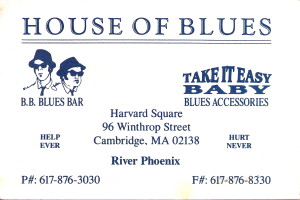
Moments earlier, Robert Redford couldn’t lavish enough praise on his co-star’s character. “River is more sophisticated than I was about the world around him…He’s very concerned and very connected to what’s going on, and has a plan, he’s active…He’s choosing to be connected
to the world around him and I find that impressive.”
Born into an itinerant counterculture family that had him singing on the street for coins, River Phoenix fluked into his first acting job at eleven and never stopped being in demand in a business where few actors get past drama school or little theater.
Both critics and public liked his raw emotions mingling from vulnerable to breakneck. For Running on Empty, Phoenix won an Oscar nomination and praise from director Sidney Lumet, saying that Phoenix was so talented there’s no telling where he’s going to go. When he finished My Own Private Idaho, Phoenix was given the first look on several expensive projects.
Although Phoenix has said that he sometimes fabricates in interviews, he appears to be a serious believer in Aykroyd’s litany of psychic adventures and conspiracies. Aykroyd talks about cow’s lips being stolen by space aliens linked with symmetrical ‘crop circle’ tracks UFOs leave on Earth. I’m laughing at Aykroyd’s routine but he isn’t smiling. “Crop circles are very, very vivid that is a tremendously vivid example of an unexplained event now that has people baffled.” Phoenix is grim and nods as Aykroyd punches each word. “They appear anywhere and they appear instantly…It seems some kind of aerial beam, lights are associated with them.
Actually, there’s no mystery at all. Two British men confessed to the hoax and Time magazine described how it was accomplished. The two fakes admitted their joke when the government was actually going to give a ‘psychic’ researcher money to study the events. The scoop, however, means nothing to the faithful. “No, it’s just bullshit,” Phoenix says in a way that’s meant to end the inquiry.
Aykroyd continues with his overall space invasion theory. “I think they’re dangerous and I think they’re bad.” You discover to your horror that this unusually nice man actually believes what he’s saying. “I think they’re draining energy. I think they’re kidnapping people. I think they’re abducting people. I think they’re here for bad purposes and cross purposes to human endeavor.
At this juncture Phoenix differs on Martian intentions. “If they have hypnotized me in my sleep they have given me wonderful, wonderful thoughts and I’ve learned a lot, a lot of insightful ideas…” The dispute is not whether space aliens walk among us, but only what their plans for us include. Aykroyd is dumfounded that Phoenix can’t see the evil designs, but his partner evinces the truer truth. “Not really,” Phoenix says, shaking his finger at us. “We are here for a bad purpose; the only good thing we’ve
got going is the written word and we pollinate a little.”
I am trying to digest Phoenix’s tangled doctrine while recovering from Aykroyd’s cow lips, but we move to new issues.
Other then laser surveillance equipment and several high tech weapons, Aykroyd says that the only sophisticated machinery he owns is a car similar to what J. Edgar Hoover drove. Phoenix comes to life and narrows his eyes sidelong to Aykroyd. “Hoover’s dead, isn’t he?”
Aykroyd forms a bizarre smile and nods quickly, “Uh, yeah, that’s right, yes…”
I look into Phoenix’s eyes but they’re severe, grainy, like a print mismatch. His face is drawn, much like he’s suffering from overindulgence.
Later, another journalist tells me that he couldn’t use a previous taped interview with Phoenix because his subject was too incoherent.
Phoenix is a well-publicized health fanatic, never eating animal carcass or disrupting his sensitive physical or emotional balance. That’s why his appearance today is so startling.
While Aykroyd is answering a question regarding invasion of privacy, Phoenix is stricken by thought and interrupts. “What would you say if I told you that I’m a bigger patriot than George Bush? I can prove it. I can completely prove it.”
Everyone is breathless to see where this is leading. “Not only do I live by the Constitution, which he doesn’t!” Phoenix waits but doesn’t get applause or laughter, so he stumbles ahead. “And not only do I have allegiance to our founding forefathers, who had a lot of sense, not like their sons, um, but there’s a constant lifestyle that backs that practice up.
He raises his voice to emphasize passion, like an orator new to stage. Phoenix is an actor who needs a script and director to be inspiring. “…It’s, it’s, it’s really a farce, the joke’s on the masses that are on their hands and knees before the cross and before the flag, because they’re crossing lines, um, this whole new world order I think is, is real, real terrible…um, idea…”
Phoenix is going nowhere and Aykroyd tries to rescue his partner. “Uh, but you know, Europe is fighting that now. You see they didn’t go for the one currency in Europe and they’re not going for the common market, really…” Aykroyd lumbers to help the dumbest reporter understand the true nature of how capitalism is every bit as dead as communism.
Despite his paternal spirit and singular beliefs, Dan Aykroyd is articulate and argues to a finish. River Phoenix has a limited grasp of complex ideas while struggling for words to chase around his own hidebound dogma. Perhaps he was once a compelling idealist, but today Phoenix is unconvincing.
I tell several colleagues that Phoenix looks, acts high. Only three of the reporters agree. Many interpret his rambling, sloganeering monologues as “thoughtful,” “intelligent,” “feeling.” I honestly don’t know who they had been listening to.
He is the darling of many in media and entertainment, perhaps because of his progressive, humanistic posturing. Appearance by River Phoenix at political rallies helped attendance, popularized causes, even if he did gulp boycotted grapes.
A month later, on the set of A Thing Called Love, a crewmember says that Phoenix looks messed up, confused, much too thin and unhealthy.
On Halloween, 13 months after my interview, Phoenix stumbles out of a nightclub and falls into convulsions. A cop at the scene said that it looked like Phoenix suffered from a classic cocaine overreaction. An hour later he’s pronounced dead at Cedars-Sinai Medical Center. All of his friends and associates say that Phoenix never took drugs.
By morning most journalists again say how “thoughtful” the young man was during the Sneakers interview. Most argue that Phoenix had too much reverence for his body, for humanity, for the environment to ever abuse drugs. None of the reporters knew Phoenix personally.
Later the Los Angeles Times runs an obituary feature comparing the “striking” similarities between River Phoenix and legendary filmmaking genius Federico Fellini, who died the same day. Flowers, candles and poetry grace the front of The Viper Room door where Phoenix was last conscious. As various stories unravel, journalists I talk to are “stunned” at the possibility of Phoenix’s drug use.
12 days after his death the L.A. coroner says that River Phoenix died from a massive accidental overdose of cocaine and morphine (possibly metabolized with heroin), with traces of marijuana and Valium.
Dan Aykroyd attends the funeral of his second partner claimed by drugs. The L.A. Blues Brothers nightclub is scheduled to open this March, four blocks from the Viper Room.
A statement representing River Phoenix declares that the actor’s death might have meaning if it brings attention to drug use and mortality. By the middle of the month a River Phoenix Memorial is unveiled at the new Paramount Theater with a gangle of guest celebrities hoisting the shrine into martyrdom. A fan asked why none of his friends helped him that night; couldn’t they see what was going to happen?
They had at least a year to straighten him out. In an interview last week, Viper Room owner Johnny Depp said, “…the tabloids and everybody were very cruel in the sense that they were really disrespectful to River’s family and his friends…I hope that people don’t just focus on the events which led to River’s death.”
River Phoenix learned nothing from Belushi, never listened to Aykroyd and Depp. Journalists indulged him platitudes while elevating his words to mysticism. Followers and friends pandered their host by tolerating his plunge, while others shared his drugs. He desperately needed council that he wouldn’t like, but his coterie withheld the news.
Believing that he could remain a useful idiot, they built, hoisted statues of Phoenix that his memory could be mined as a progressive martyr. Reporters who earlier deified Phoenix turned on his memory and joined the frenzy. Everyone found something from the wreckage of River’s passage. Sudden furious delights haunting serenity.

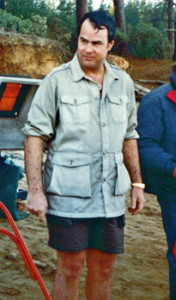
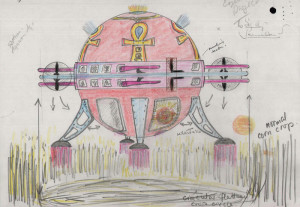
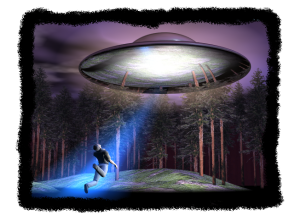
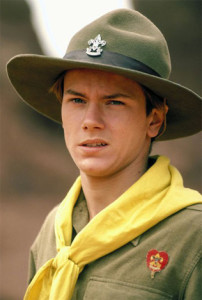
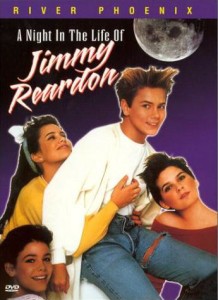
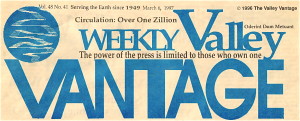
F**k off Michael Cartel
Yeah, fuck off, Michael Cartel.
Great article, not in terms of journalism or a coherent literary ability, but an interesting read for the comments that River Phoenix and Dan Aykroyd made.
Don’t actually fuck off, I apologise, it was added with some jest. However I don’t appreciate much your views on River Phoenix or the subject matter that him and Akroyd were intimating at, that’s all. Take it easy, nonetheless.
Of course no offense was taken. Your thoughtful criticism is appreciated.
Good, I’m glad. It amused me that you’d accepted the comment in the first place, so respect for that. I’m sure you’re quite an interesting person, I’ll have to do some reading.
May I ask, what was the deeper reason for your unfavourable view of River Phoenix?
Like, did it have anything to do with his masonic affiliation?
The short answer is no. I was unaware that River was affiliated with the Masons. Whether a Mason, carny or a Martian, my feature interview would have remained the same.
RE: “May I ask, what was the deeper reason for your unfavourable view of River Phoenix?” from M___Travis
Mike Cartel said –
Although a compound question, It deserves a deeper answer, that I may include at another time.
However, River’s 1993 Sneakers round table interview was witnessed (reported on) by both my wife and two other media journalists, who read the feature article and agreed with the events as I wrote them. I did not embellish. My illustration of the unfolding affair was not dramatically reconstructed.
A fairer question might be to ask, did I really need to include certain descriptions (even though true), like his wearing a food-stained, wrinkled polo shirt; Aykroyd’s awkward reactions to River’s curious, often irregular statements; my comments regarding River’s sanctimonious style; or Phoenix’s scornful judging (like ’meat-will-kill you’) while chain-smoking (and dope-dining privately).
Reasons for including this expository approach may have been tempered by watching an obviously ripped River Phoenix pontificate from a media-protected bubble while his new partner (and outspoken anti-drug activist), Dan Aykroyd sits oblivious to the irony.
I was angered and saddened when River left us at age 23(!). That’s when the story was written and released, with regard to no one bothering to help and everyone gleaning a piece of Phoenix (as an abstraction) from his life and death. And all of us who respect his memory have to face River’s own poor choices as well.
While I admit not writing a love letter, It was also not an intended hit piece disguised as a feature.
I respect him for putting his mouth and money where his passionate environmental beliefs stood. And I miss him professionally because River Phoenix had few limits as an actor. I know too that under his dilemma and demons was a deeply compassionate soul.
Sure. I believe so, with regards to Freemasonry, uh, likely O.T.O. (which is essentially the same thing at its core, isn’t it, and it was based off of the Masonic degree system). That or I’m mistaken and he wasn’t an initiate and instead different photographers had him make certain gestures for their photo shoots, if they would do that sort of thing, I wouldn’t be surprised, but I think it’s more than likely that many of these stars are part of that system, to speak nothing of conspiracies. It is what it is.
I appreciate your views. That’s why I asked by the way, not so that I could pick apart whatever you came back with, but because I was genuinely interested as to what may have influenced your opinions of him; after all, you met him, I never did – there’s only a handful of interviews to go by. I do respect what you’re saying and to have seen it unfold in person – behind the scenes, as it were – would undoubtedly leave you feeling a lot differently to the average spectator or those poisonous individuals and handlers who perpetuate such myths and are blinded by their own projections and glorifications. There seems to be a lot of hypocrisy which surrounded the whole thing and came to light with his tragic death, as is common in show business. The rise and fall, they build them up and then knock ’em down and erect an idol in their place. ‘They make your brain complete, then they blow it to kingdom come.’ Scott Weiland passed away a few days ago, sadly. I’m not sure if you read about it or are familiar with him, but it’s the same old scenario, tried and tested. They blackened his name at every opportunity they got, but as soon as he’s dead he’s elevated to a godlier than god status. It is sickening and it is saddening, I concur. And still I dream – and aim – to succeed in that industry, the entertainment industry. If you’ve got a dream I don’t think you should be deterred or disillusioned by all of the negatives that come with it. What are we here for otherwise? I ask myself, am I here to be miserable and let life pass me by or should I be doing what I’m passionate about, even if it does come at a price? I just don’t know, it causes me a lot of heartache. Anyhow, I apologise for going off on a tangent. It’s good to hear your side of it, thanks for the insight.
I really appreciated this piece. I was hunting for the video interview with River and Dan around this time but it seems to be non existant. I’m compelled unreasonably by this person’s life for some reason, or, the distortion of truth surrounding it. I didn’t take this piece as negative towards River, but as negative towards the system that created and then destroyed an image – and in so doing – a human being.
I don’t know if you interviewed him besides this, or have any other insights or resources, but I’d be curious to hear them. I’m trying to build an accurate portrait and timeline for the person behind the mythology.
Its a difficult task as his family has been mired in dogma of one type or another forever. So even people ‘close’ to him had certain blinders. Their perspective always seems driven more by the need to fit reality into their conception of it, vs changing their conception of reality to reflect the truth.
Dang I was really hoping he’d answer you!